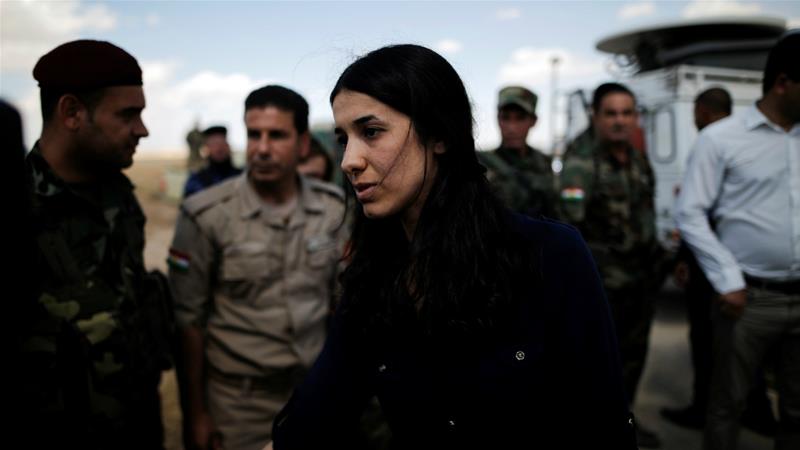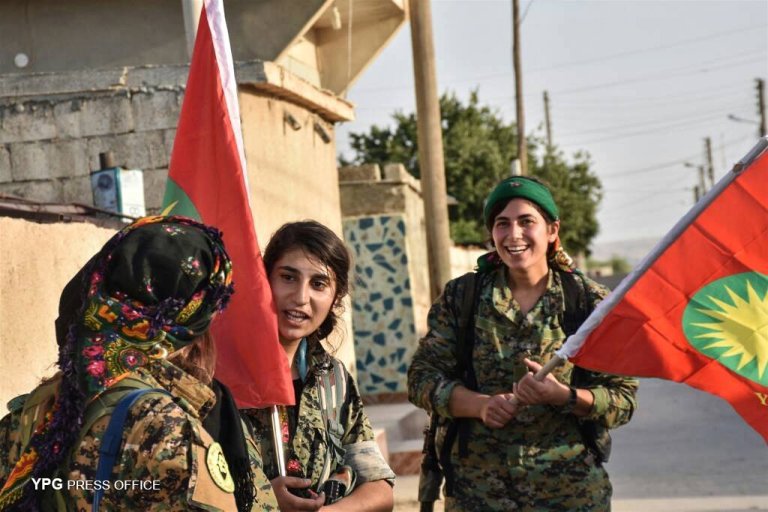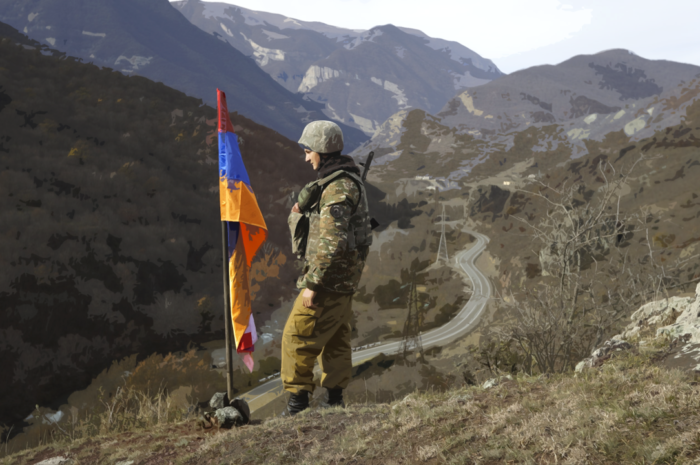
Note: The following essay appeared originally in Areo Magazine. There also is a video that has been made to accompany the essay here.
Stories of those forcefully taken from their homes by ISIS militants and sold into slavery are haunting reminders of the tyranny that Daesh (ISIS) has wrought on so many during its seizure of power in Iraq and Syria. Yazidi women were some of the worst affected by ISIS, as many witnessed their families butchered, homes destroyed and children taken. Having to undergo emotional, psychological, and physical trauma through rape, beatings, and abuse that is too graphic to mention in detail is unimaginable, yet there were thousands who experienced this — one being Nadia Murad.
When parts of Shingal (another name for “Sinjar”) — a district located in the North of Iraq and home to a large proportion of Yazidis — were taken by ISIS militants in August 2014, the world witnessed a brutal and bloody campaign of slaughter. Those Yazidis who had not yet fled to the Shingal mountains by the time ISIS arrived, and who instead became trapped in villages at the bottom of its slopes, bore the brunt of ISIS’ brutality. In villages like Kocho, men were forced to either convert — as Yazidis are considered to be pagans by ISIS — or be executed. Many refused ISIS’ demands to convert, resulting in hundreds of Yazidi men being butchered and thousands of women, some as young as twelve who were taken from their schools, being forced into slavery. Nadia Murad was one of these women who was captured. Nadia was just nineteen, when she witnessed her brothers butchered before her eyes and was sold off into sex slavery. Taken to Mosul, Nadia endured three months of horror before luckily escaping. She has since gone on to speak out about the injustices of ISIS and the need to bring ISIS militants to trial.
Nadia returned to her village in Kocho in Late May, 2017 — just after it was liberated by Hashd al-Shaabi (PMU), a collection of a majority Shiite militias backed by the Abadi government of Iraq. It is evident that years of trauma and horror at the hands of ISIS, especially when family and friends were taken, executed and sold, came flooding back to Nadia, as upon returning she cried out in agony around the ruins of desolate buildings in the village. For many of the young taken by ISIS, the trauma still stings and such experiences that Nadia has faced will not be forgotten any time soon. Since 2016, Nadia has been a United Nations goodwill ambassador.
Source: Rudaw
Nadia’s story, which has been documented in a Time Magazine article from 2015, also highlights the barbarity of ISIS and the suffering experienced by those sold into sex slavery. For example, Nadia recalls how some women would throw battery acid on their own faces just to avoid being picked by militants for sex. Women who are enslaved are treated as objects to be used and abused, where militants share and trade them amongst one another. This sex slavery network, where militants buy, sell and gift sex slaves to other militants between Iraq and Syria, is very popular — narcotics are also traded. After being captured and interviewed, a wife of an ISIS militant (wives are treated differently to sex slaves, as these wives came to the caliphate voluntarily) explained how this operation works.
Source: SDF Press
Another Yazidi woman that was taken into slavery by ISIS was Nihad Alawsi. She was just fifteen when militants abducted her. In slavery, Nihad was beaten, raped by multiple men and forced to have a child — to describe her experiences as going through hell would not come close to reality. This woman was beaten, raped repeatedly, and verbally abused by her “owners.” Nihad is scarred both physically and mentally and has developed Post Traumatic Stress Disorder (PTSD) over what she had to go through in those months of captivity. But she is not the only one. Many Yazidi women who have been liberated from ISIS show signs of trauma and have to undergo serious psychological treatments. This only further highlights the impact that ISIS has had on the psyche of people, especially the Yazidi community.

Source: Amar International Charitable Foundation
Put simply, ISIS committed a genocide in Shingal through its deliberate targeting of Yazidis for slaughter and its mass enslavement of Yazidi women. Targeted for their identity, Yazidis who managed to escape ISIS’ clutches are still dealing with their trauma. Some, like Nadia Murad, have decided to help other victims and raise awareness of what happened at Shingal. Others, however, have decided to take up arms and take the fight to ISIS. Joining the Peshmerga (Kurdish forces) in Bashur (Iraqi Kurdistan) and in Rojava (Syrian Kurdistan), Yazidi fighters are now the ones who are on the hunt. There still remain many more of their fellow friends and family trapped by ISIS in places like Raqqa. These fighters desire to help liberate those they care for. And they are not the only ones.
In 2014, it took a concerted effort from multiple forces, such as the Peshmerga, Kurdistan Worker’s Party (PKK), and the United states to prevent further slaughter in the Shingal region. The Yazidis who fled to the Shingal mountains then out of fear for their family’s safety had help provided to them by the PKK who brought them arms and training. These Yazidi fighters later formed The Sinjar Resistance Units (YBŞ) for self-defense and brought the fight back to ISIS. These units have since gone on to cooperate with the Syrian Democratic Forces (SDF) in their fight against ISIS in Syria.

Source: YPG Press Office
Nearly three years after the Yazidi genocide took place in Shingal, while the world watched ISIS’ expansion in Iraq, the Yazidi community is slowly — but finally — returning to its region.
However, ISIS is far from defeated. The forces fighting against Daesh intend to oust its presence from their homes and liberate those held captive — to turn back the years of tyranny. As for those Yazidis and many other women who have been freed from sexual slavery, it is clear that serious help will have to be given to them. This will all happen in time, but until then, they can only continue their fight.
Written by Anthony Avice Du Buisson (30/07/2017)


![Unpacking Rojava: Examining power dynamics in Northern Syria – The Region [Article] [JCU Essay]](https://philosophyismagic.com/wp-content/uploads/2020/07/unnamed-1.jpg)

